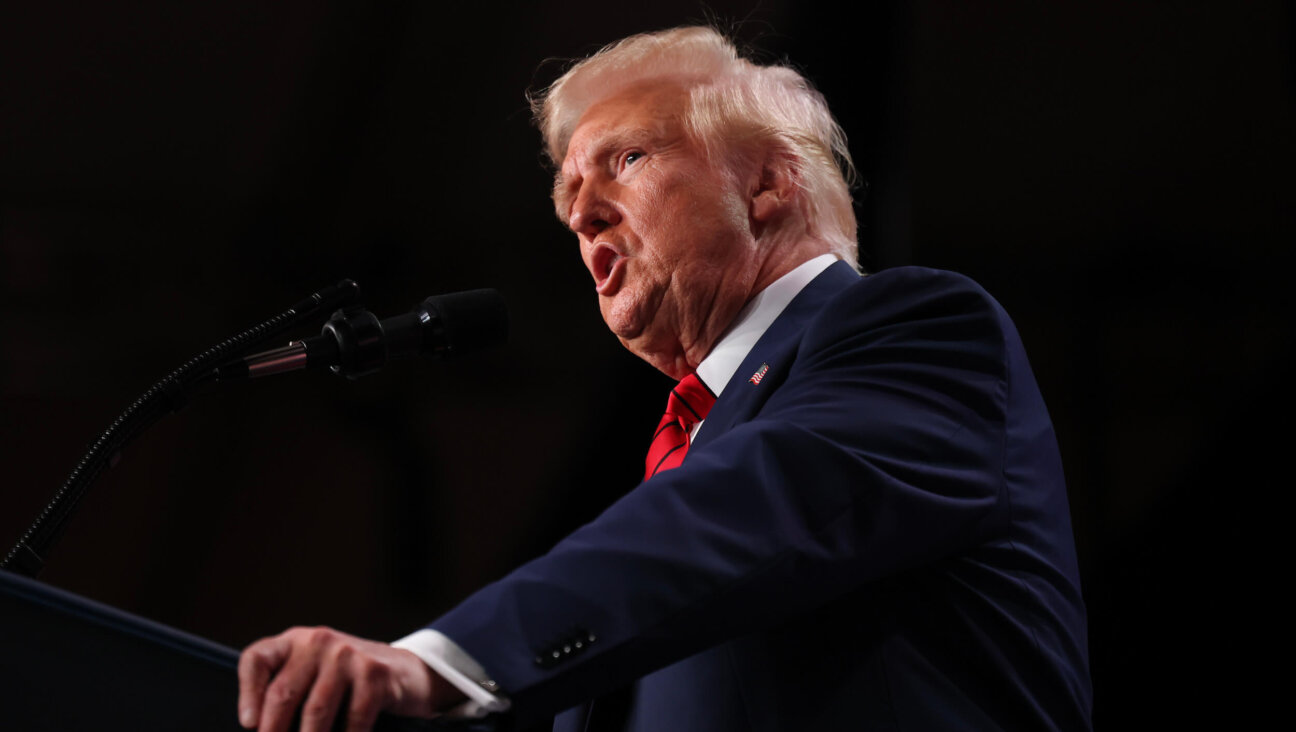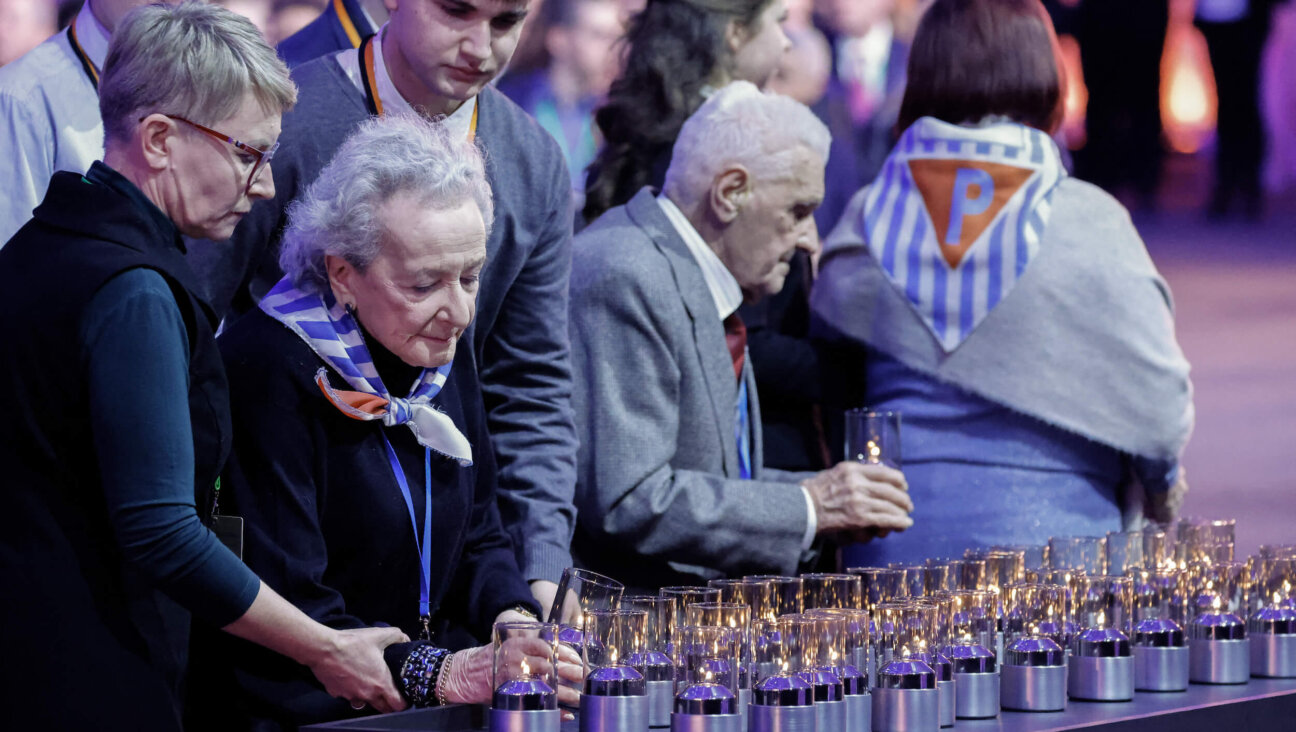Israel quietly helped Gaza fight corona. Israelis approved.

Palestinian girls wearing protective masks attend a graduation ceremony from the Police Academy amid concerns about the spread of the coronavirus COVID-19 in Gaza City on May 7, 2020. (Photo by MAHMUD HAMS / AFP) (Photo by MAHMUD HAMS/AFP via Getty Images) Image by Getty Images
In late March, the first two people in Gaza Strip were diagnosed with COVID-19. The ongoing humanitarian disaster of Gaza was poised to reach a crescendo. Surprisingly, positive things happened instead.
The overcrowded strip of land holds nearly two million people hemmed in by a 13-year old closure imposed by Israel and frequent restrictions on travel via Egypt.
During the past 13 years, Israel has imposed import and export restrictions through Gaza’s sole commercial crossing into Israel; these have crushed Gaza’s economy and brought basic infrastructure – water, electricity, sewage, and health services – to the point of collapse. A viral rampage in Gaza would have seriously threatened Israel despite the closure.
And yet, when the Gaza cases appeared, Israeli officials snapped into a pragmatic mode of action, and quietly coordinated with Gaza in unusual ways. Doctors from Gaza were brought in under the auspices of Israel’s Coordinator for Government Affairs in the Territories, an arm of the Defense Ministry for training in treatment of the virus.
Inside Gaza, Hamas authorities closed mosques and other public places, keeping infection rate low. Israeli private companies turned to Gaza factories to produce cheap PPE, giving some local businesses a desperately needed economic boost. This, too, required Israeli government involvement, since all goods moved in and out of Gaza must be coordinated through Israeli military approval processes. In the past, clothing has been among the items restricted for export from Gaza, along with fresh flowers, vegetables, and chocolate covered marshmallow wafers.
Israeli news is even reporting on quiet negotiations around a prisoner exchange, which could include the remains of several Israeli soldiers killed in the 2014 war between Israel and Hamas, and two other Israeli citizens being held in Gaza.
These developments show that the Israeli government is capable of more constructive relations with Gaza’s people and even its leaders, when it serves Israel’s interest.
The Israeli public is not an obstacle to these pragmatic calculations. In early April, shortly after the coronavirus appeared in Gaza, I conducted a survey of the Israeli public for the Israeli human rights organization Gisha. We asked 700 Israelis, a representative sample of Jewish and Arab-Palestinian citizens, whether they support or oppose Israel coordinating with Hamas to manage the spread of the virus. A majority supported such coordination: 54%, compared to 32% who opposed it (the remainder didn’t know).
Pragmatism on this issue isn’t a coronavirus-crisis fluke. In 2016, when Gisha last commissioned a survey, we asked people to choose between two opposing positions: “Senior IDF figures say that relief in Gaza will lower the desperation and tension, and the situation will be less explosive,” balanced by a statement to respondents that Israeli politicians argue a tight closure is needed for security reasons.
A majority of 57% chose the answer supporting relief. In the 2020 survey, a majority of 53% believed relief from the closure serves Israel’s interest, more than double the portion who said it would harm Israel’s interest (21%) (the remainder didn’t know). Our survey in 2016 found a similar result to this question.
Even when Gaza militants indefensibly fired rockets into Israel’s town of Sderot just before the poll, our results showed that less than one-third of Israelis thought Israel should respond by tightening the civilian closure, closing crossings even further and cutting imports and exports.
As a public service during this pandemic, the Forward is providing free, unlimited access to all coronavirus articles. If you’d like to support our independent Jewish journalism, click here.
There is little evidence that the Israeli public demands punishment of civilians, a policy that has seen three wars between Israel and Gaza and flare-ups that happened as recently as a few days ago.
And yet, Israel’s prime minister has long expressed his stalwart opposition to a Palestinian state. Fragmenting Palestinian society through the Gaza/West Bank separation policy has been a central means to destroy the possibility of a state. Fragmenting Palestinian land within the West Bank as advised by the Trump Plan is the most recent iteration.
But rewarding Hamas even through the small measures above, after years of undermining the Fatah-led Palestinian Authority and erstwhile partner for peace, is another alarming tactic in Netanyahu’s dangerous game. It weakens the possibility of a unified Palestinian leadership, and buries any remaining credibility of Fatah among Palestinians. Building up Hamas bolsters the standing of an authoritarian regime that arrests peace activists, and if granted perks by Israel, can prove that violence pays.
Israel’s leaders have demonstrated that they can treat the people of Gaza with greater humanity and pragmatism, at no political cost at home. It is cruel to help Gaza avoid the coronavirus while upholding a 13-year policy of suffocation after the crisis fades.
Netanyahu should not allow small steps for civilian relief just because of the coronavirus, nor as part of his grand scheme to thwart Palestinian self-determination. He should change policy in Gaza because is the right thing to do, by ending collective punishment, and seeking a genuine political resolution for Gaza and the West Bank as a whole.
Dahlia Scheindlin is an independent public opinion researcher and a political analyst based in Tel Aviv. She is a non-resident policy fellow at The Century Foundation.
A message from our Publisher & CEO Rachel Fishman Feddersen

I hope you appreciated this article. Before you go, I’d like to ask you to please support the Forward’s award-winning, nonprofit journalism so that we can be prepared for whatever news 2025 brings.
At a time when other newsrooms are closing or cutting back, the Forward has removed its paywall and invested additional resources to report on the ground from Israel and around the U.S. on the impact of the war, rising antisemitism and polarized discourse.
Readers like you make it all possible. Support our work by becoming a Forward Member and connect with our journalism and your community.
— Rachel Fishman Feddersen, Publisher and CEO






















